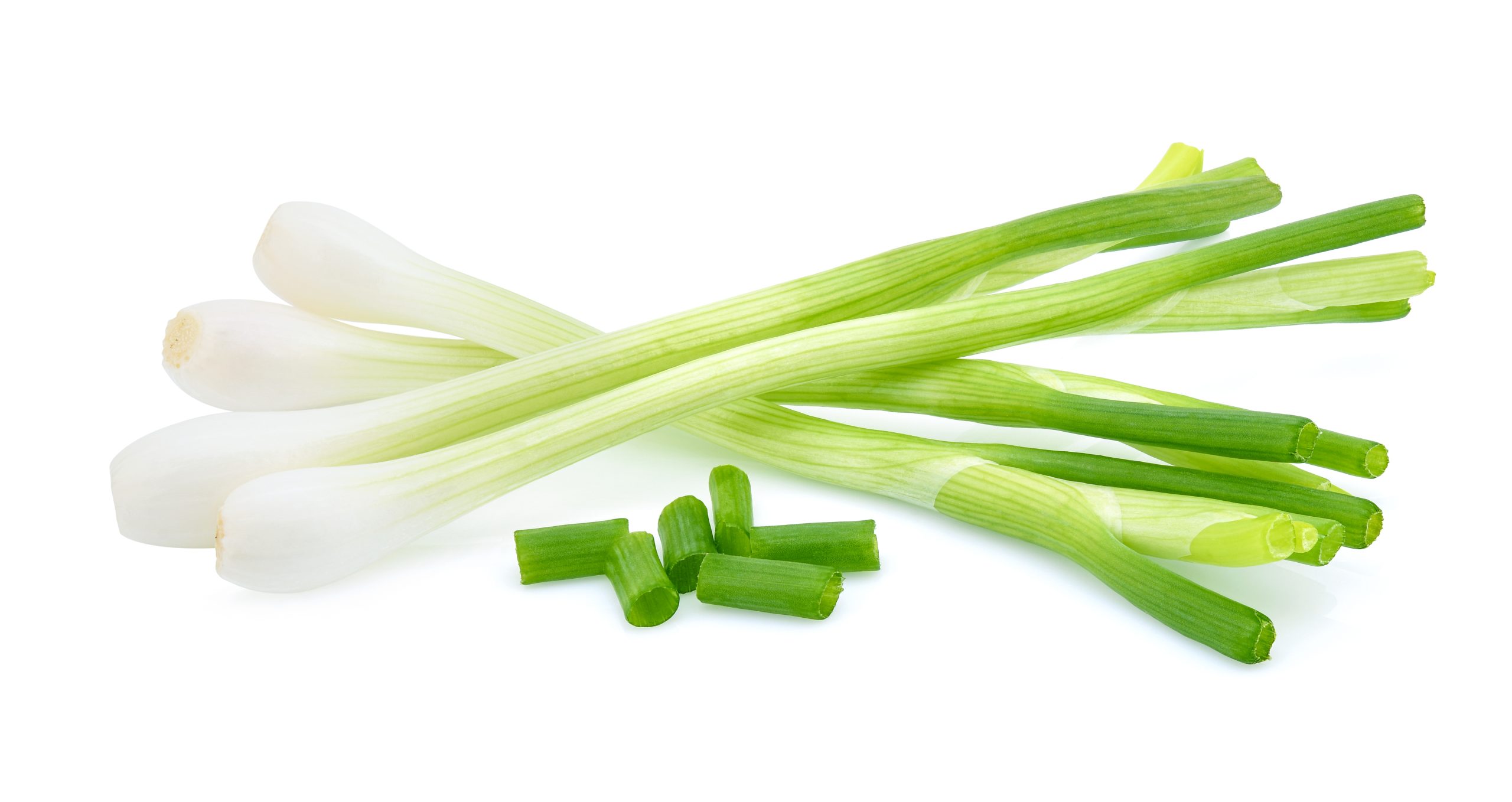Seasons/Availability
Spring onions are available year-round.
Selection/Storage
When selecting spring onions, choose bulbs that are blemish-free, firm, and crisp. Avoid any with soft spots or wilted leaves. The fresh roots should be attached to the base of the bulb and free from decay. Spring onions can be stored in a plastic bag in the refrigerator for up to one week. Once cooked, they can be kept in an airtight container for 2 to 3 days before spoilage occurs. It is important to note that spring onions have high water content, therefore it is best not to store them submerged in water as this will accelerate deterioration.
Preparation/Uses
Spring onions need minimal preparation prior to use and can be consumed raw or cooked. The leaves and bulbs can be diced, sliced, minced, or julienned for use in stir-fries, soups, salads, salsas, pizzas, avocado toasts, sandwiches, omelets, tacos, and more. Additionally, they are fantastic accompaniments to rice dishes or Asian noodles. They also pair well with herbs such as dill and cilantro as well as acidic ingredients like lemon juice or vinegar. To store spring onions long-term for winter use, they can be pickled in oil or brine solutions. It is important to note that when consumed raw the leaves will have a much stronger flavor than the bulb.
Nutritional Value
Spring onions are an excellent source of nutrients such as Vitamin C, magnesium, potassium, and fiber. They are also a great source of antioxidants which can help reduce inflammation and improve overall health. Additionally, they contain sulfur-containing compounds that help to protect against cancer.
In conclusion, spring onions have an incredible flavor and versatility across many different culinary applications. Not only do they add a unique flavor profile to dishes but they also provide numerous nutritional benefits that promote good health. Spring onions can be found year round in the produce section of most major grocery stores so get creative with your cooking and experiment with this delicious vegetable!



